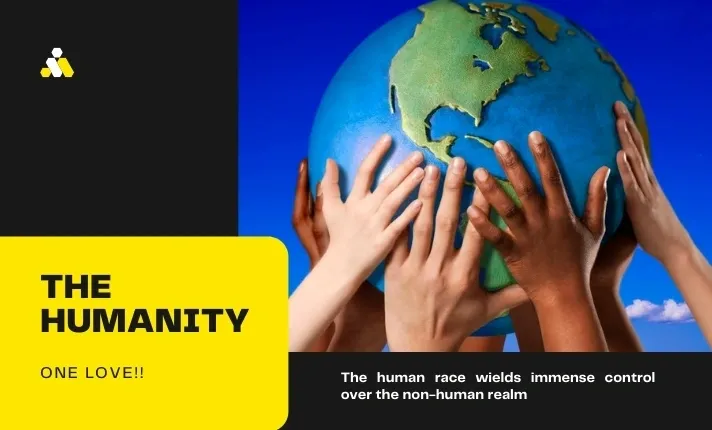Blog Details
THE HUMANITY – How Technology Change The Humanity

The human race wields immense control over the non-human realm. This is mostly due to our intelligence’s continual invention and deployment of knowledge and techniques that have allowed us to come to rule the globe, as well as our vision’s shaping of political and religious interpretations around which opposing agendas and social movements have formed.
We are not a basic creature because of our technologies; we are always a blended species – part human, part technology – in a continually shifting mix of human and non-human features. Non-human life, such as wild animals and small organisms, must be enraged by our hybrid humanity, which could easily “lead us down” in a fair fight of straightforward life forms, but who have repeatedly observed us in hybrid forms in which we coalesce our humanity with harpoons, firearms, zebras, automobiles, immunizations, and medications.
Human deal with a variety of human-machine interactions (HMI) on a daily basis. On a long hot day, I’m typing on my Macbook Air with an electric fan to keep me cool. Our technological progress gives us an unjustified impact on nonlife forms, both large and small, which usually stay easy in one form, with the exception of viruses and bacteria, our most dangerous carnivores, which can modify form fairly quickly.
Our inherent multiculturalism with other creatures – animal, plant, and machine – existence is currently in the early phases of a massive leap towards new forms of power that we cannot imagine. Our hybridized humanity is poised to spread enormously in a way that is already redefining what it means to be human, thanks to new biotechnology, robotics, and artificial intelligence (AI) developments. Today’s scientists are concentrating their efforts on developing human-machine interfaces – various forms of “monitoring systems” that employ our sensory organs and identify human expressions to allow our humanity to smoothly communicate with AI of multiple levels. As new degrees of involvement with technology become implanted in our bodies and brains, these interfaces will unavoidably have an impact on our experience of being human and the potential of humanity.
Technology will not only impact where we are today but also where we can go in the future. Humanity will be strengthened in both spatial and temporal, as well as dispersed across both. Because I’m on Facebook or Facetime, for example, I’m already visible elsewhere, communicating and replying in tens of thousands of various locations across spacetime. This is in stark contrast to my great-grandmother, who could only be seen and connected in one place at a time, or in two places at two times when someone in a far distance was reading a script she had written
This time-space compression and the consequent context implosion, which commenced with television and radio, has become an ever-increasing element of human existence. Some of our grandkids will most likely be chatting and paying attention in a hundred different places at the same time as visualizations or lifelike drones or inhabited copies. Because of physiological and AI advancements, they will most likely be proficient in all dialects, travel through space far faster than we do, and live indefinitely on Earth and in space. Our robots will achieve unprecedented levels of independence, which will unavoidably be transformed by computer science into new kinds of non-human and non-animal life, despite the fact that they were developed by humans.
All of this suggests that
.png)
The humanityhumanity’s potential as a civilization is set to grow enormously as a result of a transformation in human-machine interaction that will usher in new forms of acculturation above our existing comprehension. Our collective human ability will get even stronger, but what about our intelligence and how we employ this new human power? In a nutshell, how do we behave ethically in our new prototype humanity?
Humanity’s purpose in this context refers to human behavior that is motivated by a deep and fundamental belief that life is preferable to death, and that living healthily entails being treated humanely in mutually respectful interactions. This attitude is reflected in the International Conventions’ norms of conduct, as well as the Catastrophe Laws proposed by the Movement to improve disaster risk reduction, readiness, and management around the universe.
Humans are social beings by nature; we are biologically, intellectually, physically, and religiously inclined to want to be part of a group. Our relationships with others, like our relationships with ourselves, are favorable to fulfillment, offering direction and significance in our daily lives. We all need good relation more than ever in a more lonely and technologically connected society, and the enormous influence of both personal and social connections should not be neglected.